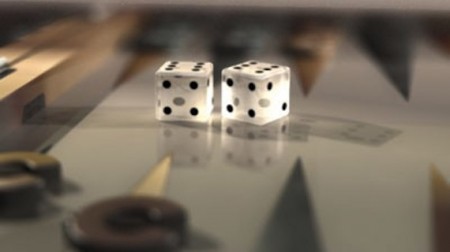
It was a long night for everybody. In my case it was made of telephone calls by colleagues from around the world,who tried to find out what is really going on in Greece. I kept saying that whatever is happening on the political scene,people are tired of the endless games of some politicians,and hope they will eventually act with a touch of common sense. It seems,however,that Greece might secure the next tranche of EU bailout money,and remain a member of the Eurozone,in spite of the horrific tremor its political system is enduring.
As a result,people try to concentrate on their work,if they have one. Their attention is stubborn,stately focused on a possible future. There still are projects that they want to come to fruition;they still believe that endurance is rewarded with a promising outcome,and this make their sacrifice worthwhile. If a few weeks ago they felt on the threshold of a new era;now most of them have crossed over. They populate an unknown zone in time,a place where politics are not the same they used to be,and politicians cannot follow the rules of the past. This baffles them,and people’s reaction to it comes in different shapes.
On a call in between airports,my friend Maria confessed her shock over the fact that Italy faces the abyss as Greece does. “What has the future in store for our countries?” she asked me. A Greek history professor,but a foreign correspondent by trade,Maria cannot refrain from being deadly dramatic in everything she says. Confident in her understanding,I shared my concern over the sense of contingency that envelops our lives. I nagged a little over the political future of Italy,and adventured myself so far as to state that Greece has never before experienced such a crisis.
There and then,and just as I imagined it,Maria went mute. “No…wait.” She uttered after a few seconds,and hit me with an interesting take on the current Greek crisis.
“Papandreou played well!” She started off with,but went on asking me if I noticed a pattern resembling a Backgammon game in the recent Greek political events. Puzzled as I was,Maria didn’t take long to understand that I don’t play the board game.
Happy to solve what for me was nothing but a riddle,she started lecturing as she waited for her suitcase in Rome. Backgammon,or Tavli as commonly known by the Greeks,is based on philosophy. Its beauty can be found in the grand design hidden into its board. The wooden plank where the battle takes place represents one year,and each side of it twelve months;the twenty-four points on it are the hours in a day,and the thirty checkers represent the day in a month. Finally,the sum of the opposing sides of the die represent the seven days of the week,and the contrasting colours stand for night and day. The winner is always the one able to hold on to the end of the game,no matter what the opponent might throw along the way. “It is just like life.” She concluded.
I started to see what Maria implied;George Papandreou’s ability to endure,and play on the very difficult Greek political board,reminded her of the cunning of a Backgammon player. She stressed that from a strategic point of view what happened in Greece is good:the lame political routine made of micro politics,that finds a justification only in the desire of certain politicians to gain power taking advantage of a crisis,has now lost its larky flavor. Therefore,due to the seriousness of the situation,obsolete political practices have either to be put aside or to adjust to new rules. “Papandreou found a way to bend them all. It’s the Greek old way” she stated.
I admit that I did not see eye to eye with this interpretation at first;to me the never changing rules of Backgammon could hardly offer an inspiration for a new political routine in Greece. Nevertheless,I soon found myself mulling over it:“extreme measure for extreme political weather has been taken. It was a matter of nerves and strategy enacted to win the war,not a battle.”
Is Greece a country born out of extreme political strategies? Maybe,maybe not;but the hardness of the game made me shiver.
As a child,I saw stories of kings and queens unfolding in front of my eyes on the chess board:some of them lived,some died;in the end nothing really mattered,it was only a game. In this case it is a country,and real people. Greece had to reach the point of ‘check mate’to see everybody’s attention focused;to force them to take responsibility over what they can deliver.
“If we want things to stay as they are,things will have to change”,writes Giuseppe Tomasi di Lampedusa (1896-1957) in the The Leopard (1963). Is this the kind of manoeuvrings Mr. Papandreou had to pull to finally see some capable people working together for Greece? Maria seems to be sure about it;I am keen on thinking she is right.
Then,the worse of me gets the upper hand and I recall Lampedusa,again:“We were the leopards,the lions,those who take our place will be jackals and sheep,and the whole lot of us –leopards,lions,jackals and sheep –will continue to think ourselves the salt of the earth.” He spoke about politicians.